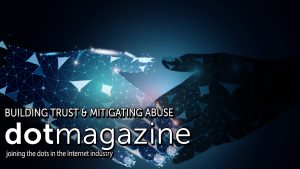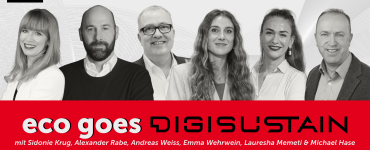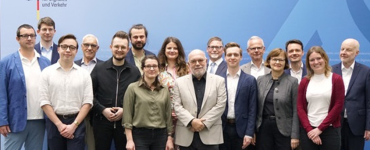As digitalization becomes even a bigger part of our everyday lives, it’s great to know that it can offer vital support – not just to large and small businesses and economies, but to citizens all around the world. Yet its potential is still largely untapped. This is due to the fact that some digital technologies are not always just accessible for favorable purposes but can also be subject to criminal or ethical maltreatment. In order to build trust, what is therefore becoming ever more important is a digital trust mindset with commitments to security, transparency, and ethical use. Stakeholders are therefore leaning into and collaborating on trustworthy systems, ensuring that the Internet is ideal for all to use.
In order to gain such trust, collaboration needs to happen at all levels: local, national, and global. In ensuring that the Internet is safe for everyone, Internet governance – the shared development and application by governments, the private sector, and civil society – is therefore an utmost priority. Nonetheless, as technological innovation bounds forward, it is rather challenging for Internet governance to keep pace and track of everybody involved. The solution? In looking ahead, the Australian ccTLD registry auDA (.au) emphasizes how imperative it is to use the multi-stakeholder approach in addressing challenges. For us all to gain a sense of ease, this requires both enhanced participation by underrepresented stakeholder groups and regions as well as cultivated collaboration with the technical community.
From its end, the technical community itself is progressively embracing joint action across all types of fields. For example, when it comes to the crucial nature of interconnection – which streamlines and secures the flow of data – Ivo Ivanov from DE-CIX reports on how his organization has initiated the Interconnection Academy in collaboration with the Barcelona-based Universitat Pompeu Fabra (UPF). By bridging the gap between academia and commercial organizations, the aim is to prepare individuals for a rapidly evolving digital economy and make valuable knowledge of interconnection freely available worldwide, fostering trust in the skills and expertise of interconnection specialists.
What is also no surprise to learn is how highly alert the domain industry is to building trust. As the Internet’s backbone, the Domain Name System (DNS) is critical to the integrity of services and applications, given that it resolves host names to IP addresses which we humans can easily memorize. However, with the increasing threat of recurring attacks, there is a growing need for a secure and robust DNS infrastructure. In pursuing this topic, Thomas Küchenthal from LEMARIT notes that what is particularly essential in ousting spammers is DMARC (Domain-based Message Authentication, Reporting, and Conformance), which virtually acts as the safe umbrella of the SPF (Sender Policy Framework) and DKIM (DomainKeys Identified Mail). DMARC is also featured by Christophe Gérard from Nameshield, who sees this as a crucial proactive measure in light of the escalating DNS security threats. Christophe also draws attention to the value of DNS Security Extensions (DNSSEC), which can play a pivotal role in protecting against evolving threats, striking a balance between encryption, privacy, and usability.
In tapping into further DNS factors, Gia Isabella from CleanDNS stresses just how highly instrumental reputation blocklists (RBLs) are in mitigating online victimization. However, she also states that relying solely on RBLs is not exhaustive and that it is imperative to apply region-specific data in collaboration with local authorities and organizations in underreported regions. For the domain industry as a whole, collaboration is at the center stage: think of ICANN Contracted Parties who are currently set to vote on Proposed DNS Abuse Amendments, or eco Association’s topDNS initiative to fight DNS abuse (see last month’s dotmagazine article).
Last but not least, the advent of artificial intelligence adds to the urgency of addressing trust in the digital economy, with concerns on AI principles being one of its major stumbling blocks. As Kelly Hardy from iQ Global spells out, while our everyday life is already full of positive AI – think of rote tasks, cancer screening, not to mention vetting online abuse – there are nonetheless any number of threatening headlines suggesting that AI is somewhat evil and should be feared. Transparency and ethical use are therefore key: Kelly cites a recommendation on “deploying AI and Large Language Models (LLMs) in products developed with a strong ethical compass and keeping the focus on good Internet stewardship.” In also addressing topics such as LLMs, Dr. Luca-René Bruder from Alexander Thamm GmbH indicates just how critical it now is to have “explainable AI” (XAI), with one such approach involving using perturbation-based methods to make AI models more transparent and understandable.
All in all, a digital trust mindset underpins the overall positive approach to digitalization. In the technical community, stakeholders can play a major role in crafting the digital trust journey, not only through working on trust in their own organizations, but also linking with other stakeholders to ensure that every aspect is secure, transparent, and ethical.
Read the articles on dotmagazine newsletter.




